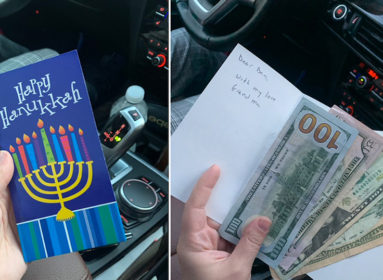
By Rabbi Stephen Lewis Fuchs
Why I love the Lone Ranger
With my face reddening, I’ll admit it. I love Lone Ranger reruns.
Why would a 71-year-old, supposedly sophisticated rabbi spend time watching a children’s western show that ran more than 60 years ago?
Because of the message!
My studies have convinced me that our main purposes as creatures created “B’tzelem Elohim, in the image of God, is to use whatever talents we have to create a more just, caring and compassionate society on earth.
As I have often said in speeches in the U.S., in Germany and around the world: we will not all cure cancer or make peace between Israel and the Palestinians, but our Covenant with God requires each of us to do what we can to fulfill God’s charge to Abraham to, “Keep the way of the Eternal one and fill the world with tzedakah u’mishpat – righteousness and justice” (Genesis 18.18).
I love the Lone Ranger and his faithful Indian companion Tonto because in pursuit of righteousness and justice they battle hopeless odds to right wrongs and thwart those who kill, cheat or exploit others. And, yes, I love the fact that the good guys always win.
In real life, of course, evil often triumphs and many fighters for justice and righteousness do not prevail. But the Lone Ranger is a symbol of a vital Jewish value: hope.
No matter what we have suffered, and no matter how dire things have been, our people have always held on to and pursued the hope that things can be better.
The Lone Ranger and Tonto are always on the lookout for those who need hope and help to defeat evil forces, and they never seek or accept a reward for doing what is just and right. When their work is done they ride swiftly away in search of their next opportunity to take make a positive difference.
Parashat Re’eh, specifically Chapter 15 of Deuteronomy (Devarim), reminds me of what the Lone Ranger and Tonto represent. Verse four states God’s ideal: “There shall be no poor or needy in your land.” But several sentences later – verse 11 – we confront the contradictory reality: “But the poor shall never cease from your land,” therefore do not turn away from them. Do whatever you can to help.
The Lone Ranger and Tonto embody this ideal: Their mission is to make the American West a place where no one’s hard work and hopes for the future is thwarted by ruthless villains. They do not eliminate evil, but they fight relentlessly against it.
A world without evil is a glorious ideal that will always elude us. But we, like the Lone Ranger and Tonto, can inch the world closer to that glorious hope.
Their example takes on greater urgency as the Hebrew month of Elul approaches and with it the task of more intensively scrutinizing our conduct to determine how we each might live closer to God’s hope for us.
Our tradition teaches that after shattering the Golden calf, Moses went back up the mountain on the first of Elul to try again. He hewed out new tablets and spent 40 days in contemplation on Mount Sinai before descending with the second set of God’s commandments on Yom Kippur.
On the first of Elul, Yom Kippur is 40 short days away. The Lone Ranger and Tonto give us a wonderful model of how to use them. No, the good guys will not always win, but each of us can do something to help them win more often.
I treasure a story I first heard from Rabbi David Saperstein more than 40 years ago: A man went every day to the wicked city of Sodom encouraging the people to repent.
His friends called him a fool saying, “Don’t you know those people will never repent. Why do you go down there every day wasting time and energy? Those people will never change and be like you.” The man answered, “Perhaps not; but I must do what I can every day, so that I don’t change and become like them.”
The world will never be perfect, but I love watching “The Lone Ranger” because the heroic masked man never stops trying to make it better. We can do the same.
As Rabbi Tarfon taught, “You are not required to complete the work, but you are not free to desist from it” (Pirke Avot 2:21).








 Southern New England Jewish Ledger
Southern New England Jewish Ledger









